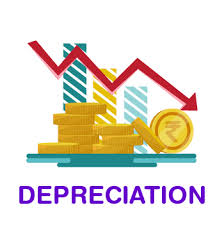
Definition of a dividend
A dividend is a payment by a company to its shareholders representing a portion of earnings. The board of directors of the firm determines the amount paid in a dividend.In order to calculate a dividen...

A dividend is a payment by a company to its shareholders representing a portion of earnings. The board of directors of the firm determines the amount paid in a dividend.In order to calculate a dividen...

Diversification is the act of spreading investments amongst different assets, companies and sectors. The idea behind this is to reduce risk. If one investment fails, the investor will only lose a prop...

Divergence is when two items move in different directions to each other, and away from each other. In finance, the term divergence is applied to asset prices, indicators and indices.Divergence can pro...

A distressed asset is one which is in major financial difficulty, usually either in default or close to default. This will have caused the asset to greatly devalue. Distressed assets can be a good opp...

A Discounted Cash Flow or DCF is one of the most important methods used to value a company. A DCF is carried out by estimating the total value of all future cash flows (b...

A discount rate is the rate of interest used in a DCF to convert future cash flows into a present cash value.The discount rate has to take into account the risk of future cash flows, as well...

Dilution is a financial concept to represent a decrease in value and can apply to either a transaction or a bond. For both, it refers to the fact that value is lost purely on paper.In a transaction, d...

A derivative is a financial product whose value is derived from another asset (also known as the underlying asset). Derivatives are frequently used for speculation and hedging of risk and the most com...

Delta is a term used in trading to compare the change in the price of a derivative compared to the change in the price of the underlying asset. Delta is one of the 5 technical risk rati...

Depreciation is when an asset is deemed to have reduced in value. No tangible asset can last indefinitely and therefore at some point, the asset will no longer be usable and will have to be recorded a...